The Positive Effects of Faith
Nothing will get (some) scientists riled up more than claiming that there is scientific “proof” of anything remotely spiritual or religious, including the positive effects of faith.
And with good reason, for there are (some) people who are much too eager to go around stating, “research says this or researchers have found that,” without citing that specific research study (or studies.)
I understand their enthusiasm because I have it myself, but that method is not scientific as defined by research methods. There are other scientists, however, who do cite their research which does cite their findings on faith and its positive impacts on health.
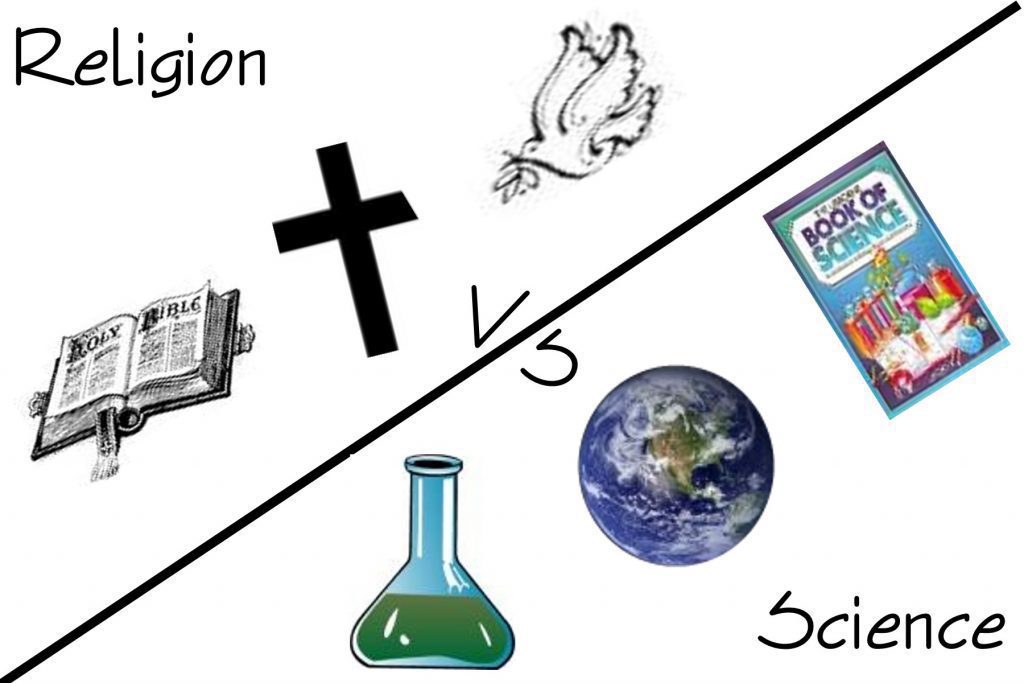
Studies on Faith and Prayer
Personally, I have studied hundreds (if not thousands) of research studies and read dozens (if not hundreds) of books on the subject of faith and prayer. I can tell you that scientists are sharply divided on this topic, much like scientists have divided opinions on many other topics.

Do I remember off the top of my head which study found this or which study found that? Hardly. I can barely remember what I had for breakfast this morning. Unfortunately, I do not have a photographic memory. Most people don’t.
The memory works based on the meaning that we give it and interpretations are subject to individual perceptions. I DO remember studying that in school.
You will most likely not ever hear me saying that “this finding” was found by “so and so, this person, that person, and the other person” during “such and such a study,” at “This Here University,” on a certain summer day two decades ago, at 1:00 p.m. in the afternoon.
Mostly because I don’t have time to figure all of that out. If I did have time, I could probably find it but then it would bore you and put you to sleep.
A Little Background About Science And Faith
So, how about I just do this: How about I give a little background about where my ideas come from and then just speak from the heart?
Something that I do understand clearly (because it is a common language in scientific experiments) are the concepts of a “placebo” and a “nocebo.” So, let’s start with the definition of both because it is important to a real understanding about faith.
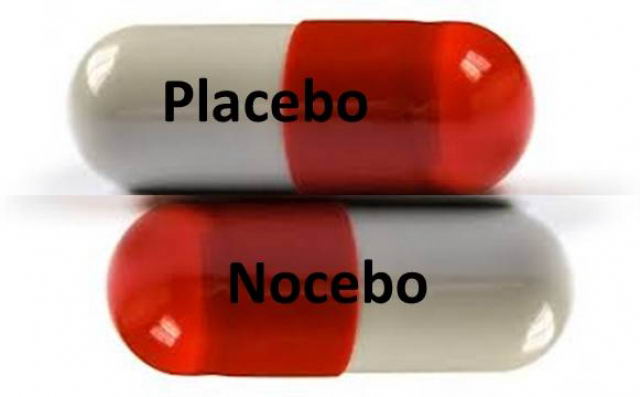
Many studies do research on at least three groups of people, the experimental group, the control group and a group that receives no treatment at all. For example, if a drug is being tested, the actual drug will be given to the experimental group. Then something called a “placebo” will be given to the control group. The third group will receive neither.
A placebo is a “fake treatment.” This could be a fake pill, a fake injection or any other inert substance that mimics the “real” drug or treatment.
So, let’s say you give a drug to participants who are ill and the drug cures 40% of the people in the experimental group, the placebo “cures” 20% of the people in the control group, and only 5% get well with the group that received nothing. What just happened is that 15% of the people who received the placebo got “cured” based on their “belief” alone.
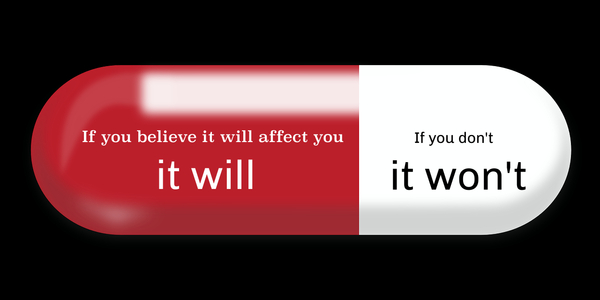
On the other hand, there is another effect called the “nocebo effect,” which is when there is a noticeable detrimental effect and a person becomes worse due to their “fear” of that drug (or it’s side effects.)
These two conditions are commonly known as the “placebo effect” and the “nocebo effect.”
So what does this mean? It clearly means that a person’s “belief” can have a positive or negative effect on the results of the study.
Quantum Physics And Faith
Quantum Physics has their own experiments pointing out the importance of expectation and observation on the outcome of what happens in this world. Two of the most famous would be Schrodinger’s Cat and what is known as the Double Slit Experiment.![]()
Both showed that a person’s expectations and observations determined the outcome, and can even turn “waves of possibility” into “material particles.”
I said all of that to say this: Apparently, our beliefs, expectations, and observations have a direct influence on the outcomes of what happens in this world.
So what does all of this have to do with Faith? Besides everything?
The Difference Between Healthy and Unhealthy Faith
First, it is important to realize that faith can be healthy but also unhealthy.
How so?
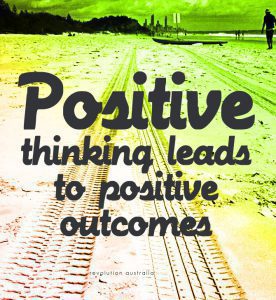
Well, read back to the placebo and nocebo effects to find your answer. It really depends on whether or not the faith or expectation is in the possibility of a positive outcome or a negative outcome.
This is why there is so much controversy around religious and spiritual topics. Some people perceive God to be all loving and forgiving, while others perceive God to be angry and vengeful, ready and waiting to punish. And then there are others who think everything is just a random coincidence.
That is all going to revolve around a person’s specific “Belief.”
So, how is a belief formed and when is it unhealthy? The easiest way to understand this is to take a belief in a negative outcome and couple that with a detrimental emotion. When this happens, we go into something called “protection” mode and we fearfully move away from something.
Joe Dispenza has done a lot of research on both the placebo (and nocebo) effect. He has also studied how repeated patterns of these negative beliefs and emotions will form neural networks in our brains.
The best I can figure is that there is a good reason for our brains to be designed that way, and that is to keep us from having to re-learn something over and over and over again. For example, driving, typing, and other repetitive actions become automatic when we practice them enough.

But if negative patterns are repeated often enough, they will keep our minds and bodies under constant stress, and this will have a long-term debilitating effect on our bodies and our lives. This is commonly known as the “Fight or Flight” response.
In this case, the body is producing chemicals in the body that are related to stress, such as cortisol and adrenaline. These chemicals are very important (and good) if we are under immediate threat by a lion or near car accident or some other immediate threat to our lives.
But when they become part of our daily lives and there is no immediate threat, they can cause serious life-threatening illness or disease.
In Contrast …
In contrast, if we are having repeated positive thoughts and beliefs, paired with positive emotions such as love, safety, and security, we will move towards what Bruce Lipton calls “Growth.” These types of repeated patterns are life-enhancing, and if those repeated patterns revolve around love, then we will experience what Bruce calls the “Honeymoon Effect.”
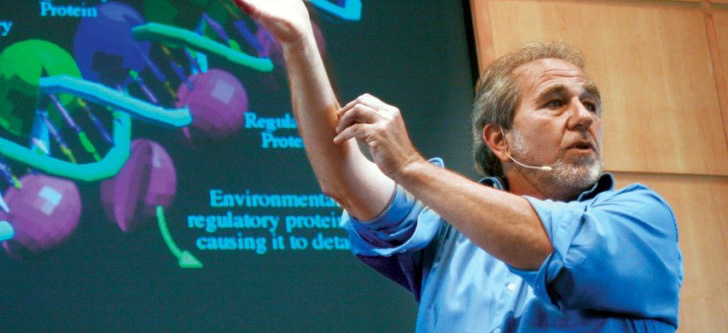
If we develop the habit of forming neural connections that are positive, they will strengthen in time and those negative neural connections will eventually weaken and no longer control our lives in a negative way. Joe Dispenza calls this, “Breaking the habit of being ourselves.”
Once again, the body will release chemicals, but this time those chemicals will eliminate pain and make us feel better, such as endorphins and dopamine. These chemicals promote healing, strengthen our immune systems and balance our hormonal systems in the body.
The Benefits Of Healthy Faith
Healthy faith has also been known to help us to cope with stressors that are out of our control, it has been known to give us hope, to make us more optimistic about life in general, and to reduce mental illnesses such as depression and anxiety.
What it boils down to is “Hope and the Will to Live” versus “No Hope and the Will to Die.” Healthy faith promotes the former, but also helps us to cope with death, whether it is our own death or someone close to us.

Speaking From The Heart
So, here is where I speak from the heart about all of this.
How many times have you lost someone really close to you or had to deal with a terrible tragedy? I hope not often, but most people experience this at some point in their lives.
I can’t tell you how many times I have heard the expression, “I could not survive without my faith.” I have said it many times myself.
If a person has gone through a tragedy and they choose to have healthy faith, why in the world would I (or anyone) ever, EVER want to take that away for them? What would be the point?
In my opinion, healthy faith is a way of perceiving the world with meaning and purpose. If it makes us feel better, then it will have positive effects on our mental and physical well-being. It gives us hope when there is none by all other standards.
It gives us hope that we will see our loved ones again. It gives us hope that we will be forgiven for our mistakes. It gives us hope that miracles can and do happen and all is not lost. It gives us hope that we are all connected and it gives us a reason to treat one another with respect and value.
Healthy Faith gives us hope that we are each understood on some level. It gives us the will to live. It gives us the desire to do better.
Healthy Faith Gives Us Hope
If you take away someone’s faith, you take away their hope. If you take away their hope, you take away their meaning, purpose and will to live.
If you take away a person’s meaning and purpose and will to live, then you are saying that life itself has no meaning.

Personally, whenever I look at a newborn baby and I am utterly and completely amazed. I am awestruck by the complexity and the beauty and the innocence and the value.
Life does have meaning all right. The meaning that we give it. We can give it meaning with purpose and value, or not.
Life has never been, nor will it ever be a random accident in my mind.
Why? Because I have faith that Life happened, and it happened on purpose.
